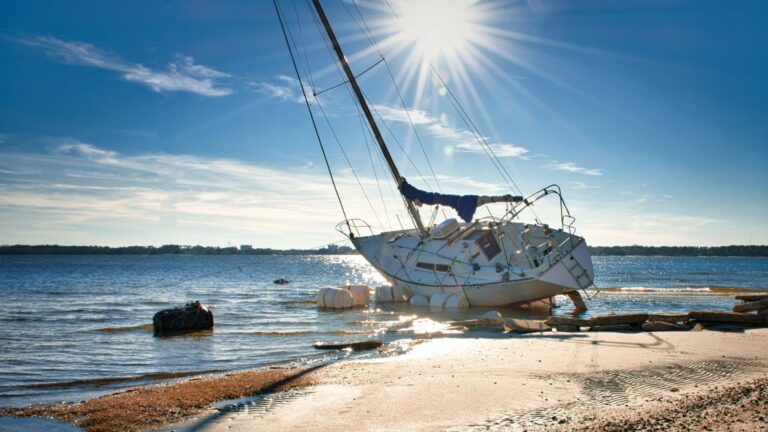Buying a sailboat is an exciting and life-changing decision, but it’s important to approach it with careful planning and realistic expectations. Below, we’ve compiled some frequently asked questions and points to consider that will help you find the right vessel for your needs.
Where Do You Plan to Sail?
Q: What type of waters will you be navigating?
A: Consider the areas where you plan to sail:
- Inland Waters or Harbors: For leisurely weekend trips or local sailing, a smaller, easier-to-handle boat might be ideal.
- Coastal Areas: If you plan to sail near the shore, ensure your yacht is suitable for variable conditions and has good maneuverability.
- Open Water and Sea Voyages: For longer journeys or overnight trips, look for a vessel designed to handle changing weather conditions.
- Ocean Crossings: If you envision crossing large bodies of water or even the ocean, you need a yacht built for durability, with advanced safety features and robust construction.
How Many People Will Be Onboard?
Q: For how many people is the yacht intended?
A: Think about your regular crew and potential guests:
- Crew Size: Will the boat be for a permanent crew or just for occasional use?
- Guest Capacity: If you plan to invite friends or family for short trips, ensure there is enough room for comfortable accommodations.
- Pets: If you intend to bring your furry friends, consider the space and facilities required for them.
How Often Will You Use the Yacht?
Q: How many days per year will the yacht be in use?
A: Your usage frequency can influence your purchase:
- Weekend Sailing: For occasional use, a more affordable, lower-maintenance vessel might suffice.
- Seasonal Use: If you plan on using it for several months each year, look for a yacht that is durable and comfortable for extended periods.
- Full-Time Living: If you’re considering living on board, prioritize vessels with enhanced living accommodations and storage capacity.
What Technical and Operational Considerations Should You Keep in Mind?
Q: What are the essential technical details to check?
A: Several key aspects can impact your sailing experience:
- Engine and Fuel: Does the yacht have an engine? Check its condition, as well as the fuel tank capacity.
- Electrical System and Power Supply: Evaluate the onboard electrical installations. Will you need to upgrade the system for your needs?
- Water Storage: Look at the size and condition of water tanks. Adequate water storage is crucial for long trips and onboard comfort.
- Maintenance and Upgrades: Consider whether you plan to enhance or expand existing installations on the yacht.
What is the Construction Material?
Q: What materials is the yacht built from?
A: The construction material affects durability, maintenance, and performance:
- Fiberglass: Widely used and relatively low maintenance.
- Wood: Offers classic aesthetics but may require more upkeep.
- Steel or Aluminum: Typically used for larger or more rugged vessels. Steel, for instance, is highly durable but may need special care against rust, while aluminum is lighter and resistant to corrosion.
New or Used: Which is Right for You?
Q: Should you buy a new or used yacht?
A: Each option has its pros and cons:
- New Yachts: Often come with the latest technology and warranties, but at a higher price.
- Used Yachts: Can be more affordable and offer vintage charm, but make sure to have them thoroughly inspected by a specialist to avoid unforeseen repair costs.
Budgeting for Your Yacht Purchase
Q: How do you set your budget for buying a sailboat?
A: Define your financial limits before you start shopping:
- Purchase Price: Know your maximum amount allocated for the yacht itself.
- Renovations and Upgrades: Factor in additional funds for repairs, modernization, or customizing the vessel (for example, a vintage yacht might be cheaper upfront but require significant refurbishment).
- Running Costs: Consider ongoing expenses such as mooring fees, insurance, winter storage, and regular maintenance.
Financial Preparedness and Savings
Q: Do you have the necessary savings aside from the purchase?
A: Beyond the yacht’s price, ensure you have a financial cushion for:
- Repairs and Upkeep: Unexpected issues can arise, and a reserve fund is essential.
- Seasonal Costs: Wintering, insurance, and mooring fees add to the annual expenses.
- Conservation of Value: Regular maintenance is key to retaining the yacht’s value over time.
Professional Inspection for Used Yachts
Q: Is it worth hiring a specialist when buying a used yacht?
A: Absolutely. A qualified marine surveyor or specialist can assess the yacht’s technical condition, identify potential problems, and help you avoid the regret of buying a boat in poor condition. Spending time and money on a thorough inspection now can save you from costly repairs and safety issues later.
Final Thoughts
Buying a sailboat is not just a financial investment—it’s a lifestyle choice. It requires careful thought about where you want to sail, how you plan to use the vessel, and ensuring it meets both your practical and emotional needs. By answering these questions and considering each aspect carefully, you can find the right yacht that aligns with your dreams and ambitions on the water.
Remember, every sailor’s journey is unique. Take your time, ask plenty of questions, and enjoy the process of finding a boat that feels like home. Happy sailing!




